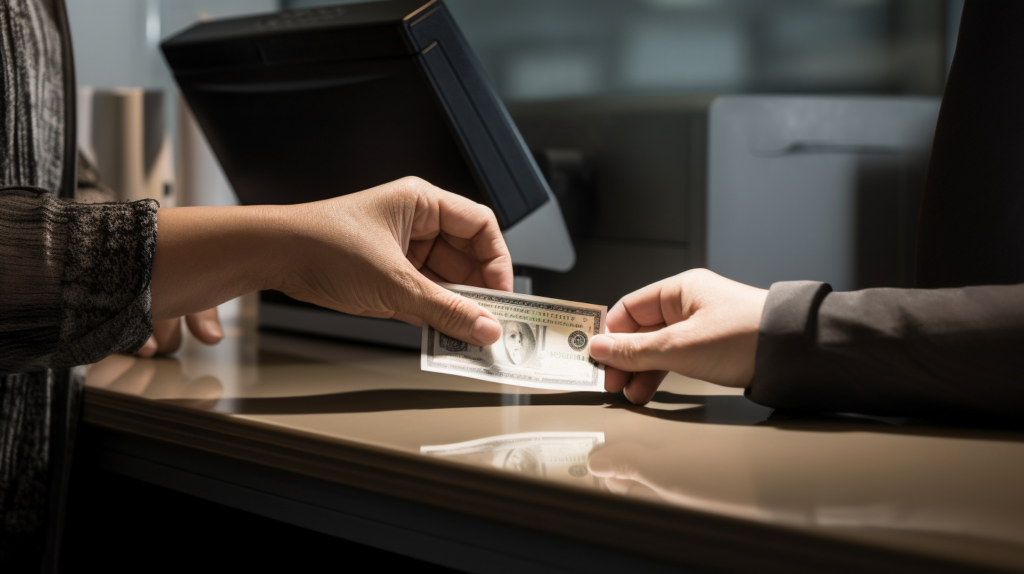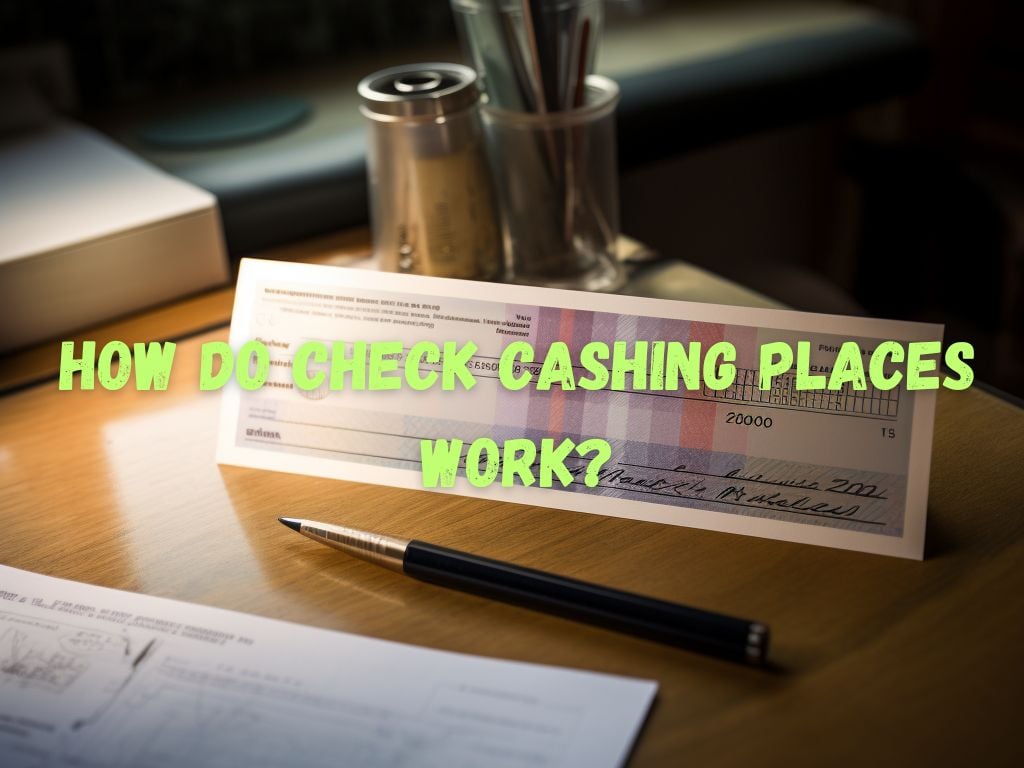When it comes to managing finances, individuals without a bank account or those who are underbanked often face unique challenges. One solution that has gained popularity among such individuals is the use of check cashing places.
These establishments provide a convenient way to cash checks, offering access to funds without the need for a traditional bank account.
In this guide, we will take a closer look at how do check cashing places work, the benefits they offer, the fees involved, and how they compare to traditional banks.
Benefits and Reasons for Using Check Cashing Services
Check cashing places are invaluable for the unbanked or underbanked population for various reasons.
First, they offer convenience, allowing individuals to cash checks without the need for a bank account. This is particularly beneficial for those who may have had difficulties opening or maintaining a bank account.
Additionally, check cashing places provide faster access to funds compared to depositing a check into a bank account. While banks may hold funds for a few days to ensure the check clears, check cashing places provide immediate access to cash.
Moreover, the flexibility of receiving payment in cash allows individuals to use the funds as they see fit, without any restrictions imposed by a bank.

How Do Check Cashing Places Work? The Process Explained
Verification and Identification
One crucial aspect of how check cashing places operate is the verification process. To ensure the authenticity of checks, these establishments employ various methods. They may use state-of-the-art technology to scan and verify checks against a database of known fraudulent checks.
Additionally, customers are required to provide identification to confirm their identity and reduce the risk of fraudulent activity. Acceptable identification documents typically include a government-issued ID, such as a driver’s license or passport.
Acceptance of Checks
Check cashing places accept different types of checks, including payroll checks, government-issued checks, and personal checks. However, it is important to note that some establishments may have restrictions or limitations on the types of checks they accept.
For example, they may not accept checks that are exceed a certain amount or checks with certain endorsements. It is advisable to check with the specific check cashing place beforehand to ensure they can accommodate your needs.
Fee Structure
While check cashing places offer convenience, it is important to be aware of the fees involved. These establishments charge fees for their services, and the fee structure can vary. Commonly, check cashing places charge a flat fee or a percentage of the check amount.
Flat fees are often based on a tiered structure, where the fee increases with the check amount. Additionally, factors such as the customer’s relationship with the establishment and the frequency of check cashing can influence the fee amounts.
It is advisable to compare fees across different check cashing places to find the most affordable option.

Funds Disbursement
Once a check has been verified and the fees have been deducted, customers can choose how they want to receive their funds. The most common option is to receive cash, which offers immediate access to the funds.
However, check cashing places may also offer alternative methods such as prepaid cards or money orders. Prepaid cards function similarly to bank-issued debit cards, allowing individuals to make purchases, withdraw cash from ATMs, and even receive direct deposits.
Money orders, on the other hand, are useful for making payments or sending funds securely through the mail. The chosen method of funds disbursement may vary depending on the customer’s preference and needs.
Regulations and Compliance
Check cashing places are subject to federal and state regulations to ensure compliance and prevent illegal activities. This includes regulations to prevent money laundering and identity theft.
To deter money laundering, check cashing establishments are required to report certain large transactions to the government. Additionally, they must implement anti-money laundering measures such as customer identification programs and maintaining records of transactions.
These measures help protect both the establishment and their customers from fraudulent activities.
Comparing Check Cashing Places to Traditional Banks
While check cashing places provide a valuable service to the unbanked and underbanked population, it is essential to understand the differences between these establishments and traditional banks. One significant difference is the range of services offered.
While check cashing places focus primarily on check cashing and funds disbursement, traditional banks provide a wide array of financial services, including savings accounts, loans, and investment opportunities.
Furthermore, banks generally offer the convenience of online banking, which allows individuals to manage their funds, make transfers, and pay bills electronically.
However, banks often have stricter requirements for opening accounts and may charge additional fees for services.
Frequently Asked Questions
How do check cashing places verify checks?
Check cashing places use advanced technology to verify the authenticity of checks. They may scan checks and verify them against a database of known fraudulent checks.

Do check cashing places report to the IRS?
Check cashing places are obligated to report certain large transactions as part of their anti-money laundering responsibilities.
Do check cashing companies charge high fees compared to banks?
Check cashing places charge fees for their services, and these fees can vary. It is advisable to compare fees across different establishments to find the most affordable option.
Are there alternatives to check cashing services for the unbanked population?
There are alternative financial services, such as prepaid debit cards and mobile banking apps, that cater to the unbanked population. These options provide access to funds and basic banking services without the need for a traditional bank account.
How can I find a reliable check cashing place near me?
You can find reliable check cashing places by conducting online research, reading customer reviews, and asking for recommendations from friends or family members who have used such services.
Conclusion
Understanding how check cashing places work can be beneficial to individuals who are unbanked or underbanked. These establishments provide a convenient way to access funds without relying on traditional banks.
By verifying checks, charging fees, and ensuring compliance with regulations, check cashing places offer a valuable service to those in need.
While they differ from traditional banks in terms of the services provided, they play an essential role in providing financial options for individuals who may otherwise face difficulties in managing their funds.


 Tags:
Tags:










